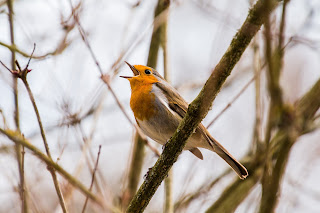Covid19 pandemic stalled the proceeding of the normal life of human beings all over the world. Lack of vehicular movement, devoid of social activities inundated the whole world into transcendental meditation. The busy schedule of our monotonous life is erased, the fresh breeze of a new aura blowing into our life. Monochrome, monotonous life turned into a chequered one. The chirping of birds, the humming sound of bees bring celestial pleasure to the deserted life. Lockdown brings aroma to our soil. Clouds moving around the cliff of mountains like a flying angel turned surrounding into a paradise.
I come from haunts of coot and hern,
I make a sudden sally,
And sparkle out among the fern,
To bicker down a valley
- Alfred Lennyson
Positive effects of Covid19 pandemic or animals are quite visible. Covid19 pandemic provides relief to wildlife. For the first time wild animals roaming freely in the wilderness of forest, even on the road, which were bursting with crowds during the pre-Covid19 pandemic period. A couple of months back, in Hyderabad, the silicon valley of India, leopards were roaming freely on the road, to the much awe and surprise of local residents.
For centuries, we had been encroaching on the territories of forest, grassy islands, valleys of mountains and turned those lands into habitable places for human beings. Wildlife creatures thrown away from their natural habitats - compelled them to roam into the wilderness with a scarcity of food and water. The sudden appearance of the Covid19 pandemic halted the human effort of erasing the greeneries from the world and inflated the size free moving area of wild animals. The motionless life of residential areas gives the wildlife creatures the much-needed licence to roam freely in the deserted areas.
Humans are the cruelest predators compare to many wild animals. The Covid19 pandemic generated lockdown erases all the fears from the heart of wild animals. Now they are roaming freely in all the places, which previously scared them.
Deforestation
There are a few negative effects of Covid19 pandemic on animals are visible too. During the Covid19 pandemic, deforestation became a new phenomenon in a couple of countries. For a few people, the wood of the forest is the new source of income. Deforestation reaches the pinnacle in Brazil during the Covid19 pandemic and the Amazon forest was at the receiving end. Sumatra of Indonesia is another place, where the prevalence of deforestation caused concern for wildlife authorities. Forest became a target of the culprits as they want to increase cultivable land for palm trees, which boost Indonesia's export generated earnings. Deforestation became a major trend in a couple of other countries like Cambodia, Colombia, Madagascar, Nepal and Myanmar. Deforestation has a direct impact on wild animals. Wild animals will be starved of food, shelters, water. It is the onus on the administration of the above-mentioned countries to take tangible steps, to stop deforestation and protect the wild animals.
Dependence of Wild Animals Over Humans
Few animals depend on humans for food. Humans share residual food with animals. Sudden lockdown starved those animals for food. In a couple of cities in India and Indonesia regiments of primates fight against each other for food. The huge number of peoples of India living in various cities and rural areas regularly feed cows and dogs. Most of the citizens of the USA, experiencing the increased number of rats creeping and crawling every niche and corner of home. Lockdown allows these creatures to roam into residential areas. During the pre-Covid19 pandemic period hotels, malls, motels, and restaurants dumped trash foods into bins, which was the prime source of food for rats and rodents. The sudden closure of the food hub forced the groups of rats and rodents to move to the residential area for food.
Singing Birds
The Covid19 pandemic lockdown reduces the volume of sounds, which allows the birds to sing with full throats. Shrill and loud noise incapacitates the bird's ability to sing. In nights, of sounds of various insects give a melodious touch to the nights, which were barely audible during the pre-Covid19 pandemic period. Covid19 pandemic taught us a lesson less sound and stay closer to nature will add devotional pleasure to the life.
Poaching of Animals
Despite the Covid19 pandemic generated lockdown, the sudden increase in poaching incidents creates a gloomy situations. The sudden spurt of unemployment during lockdown forced many people to poach wild animals for livelihood. The poaching incidents looming large in South-East Asia. Poaching incidents occurred in quite a few African nations and Kenya is one of them, where poaching incidents took a heavy toll on biodiversity. Poaching incidents also took a center stage in Pakistan and Nepal. Endangered species are the butt for poachers.
Positive effects of Covid19 pandemic on animals weigh heavily on the negative impact. Wild animals in particular are an important part of nature. The extinction of quite a few species will jeopardize the balance of nature, which ultimately affects human beings. We need to protect wildlife to maintain the biodiversity of nature. Due to lockdown animals can move freely on the road, around parks, hotels and other residential areas. Many city dwellers were first time able to listen to the melodious song of the bird instead of vehicular honk. We need to change our lifestyle for co-existence with other species.
Keywords:
Effects of Covid19 on animals,
Positive Effects of Covid19 on animals,
Positive Impacts of Covid19 on animals



If you have any doubts, please let me know ConversionConversion EmoticonEmoticon